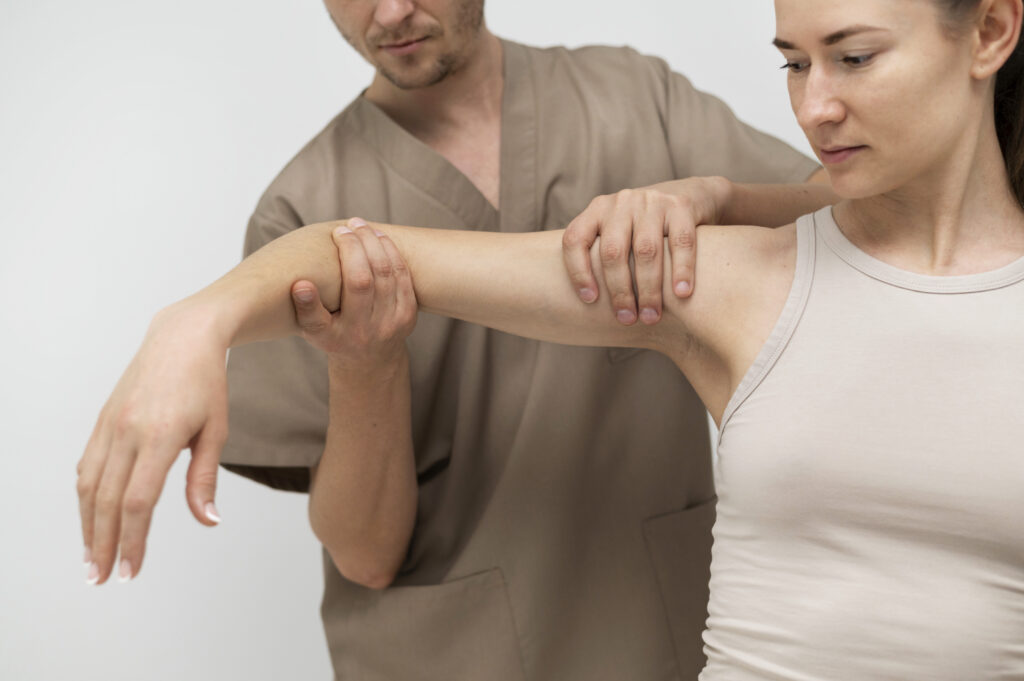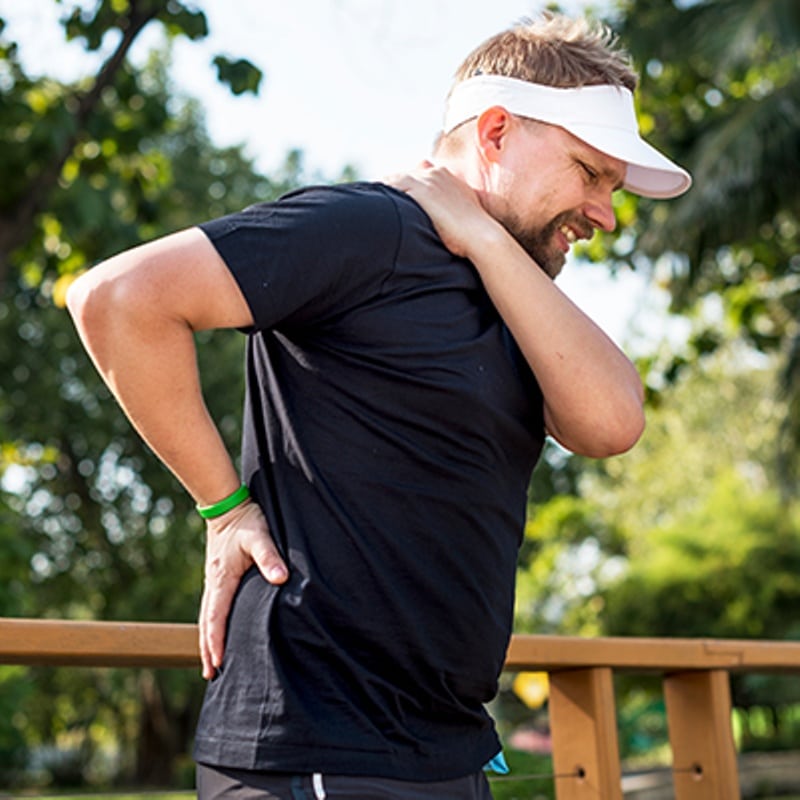You might not realize how much non-invasive stress relief techniques can enhance your daily life. They offer benefits that extend beyond just relaxation; they can sharpen your mental clarity, boost emotional resilience, and improve your sleep quality. Additionally, these practices can lead to better physical health and stronger social connections. Each of these aspects plays an essential role in your overall well-being, but the real question is—what specific techniques can you adopt to experience these advantages firsthand?
Enhanced Mental Clarity
Stress can cloud your thinking and make it hard to focus, but non-invasive stress relief techniques can help clear the mental fog. When you're overwhelmed, it's easy to lose sight of your priorities and make poor decisions. By incorporating stress relief practices into your routine, you can enhance your mental clarity and regain control over your thoughts.
One effective method is mindfulness meditation. Taking just a few minutes each day to sit quietly and concentrate on your breath helps ground you in the present moment. This practice reduces distractions and allows your mind to process information more effectively. You'll find that with consistent practice, you can approach tasks with greater focus and creativity.
Another technique is deep breathing exercises. When you take slow, intentional breaths, you activate your body's relaxation response, which lowers cortisol levels and calms your mind. This shift enables you to think more clearly, making it easier to tackle challenges head-on.
Physical activity also plays an essential role in enhancing mental clarity. Engaging in regular exercise, even a brisk walk, increases blood flow to your brain, boosting cognitive function. As your body releases endorphins, you'll feel more energized and better equipped to concentrate.
Lastly, staying organized can greatly improve your mental clarity. By decluttering your workspace and prioritizing tasks, you create an environment conducive to focused thinking.
Embrace these non-invasive stress relief techniques, and watch your mental clarity flourish.
Improved Emotional Resilience
Gaining mental clarity doesn't just improve focus; it also lays the groundwork for better emotional resilience. When you're clear-headed, you're more equipped to handle life's challenges, making it easier to bounce back from setbacks.
This resilience isn't just an innate trait; it can be cultivated through various non-invasive stress relief techniques. Here are a few ways to enhance your emotional resilience:
- Practice Mindfulness: Engaging in mindfulness exercises can help you stay present and better manage your emotional responses. It allows you to observe your thoughts without judgment, making it easier to navigate difficult situations.
- Build Strong Connections: Surrounding yourself with supportive friends and family can create a safety net. Strong relationships offer emotional support and encouragement during tough times, boosting your resilience.
- Set Realistic Goals: When you set achievable goals, you create small successes that can enhance your confidence. This sense of accomplishment helps you view challenges as manageable rather than overwhelming.
- Engage in Physical Activity: Regular exercise isn't just good for your body; it also releases endorphins that improve your mood. Physical activity can help reduce stress, making you more resilient when facing emotional difficulties.
Better Sleep Quality
As you incorporate non-invasive stress relief techniques into your routine, you might notice a significant improvement in your sleep quality. Stress often leads to restless nights, making it hard for you to drift off or stay asleep. By engaging in practices like mindfulness, yoga, or deep breathing exercises, you can calm your mind and create a peaceful environment conducive to sleep.
When you manage your stress effectively, you're less likely to toss and turn, which means you'll wake up feeling more refreshed and ready to tackle the day. Techniques like meditation can help quiet racing thoughts, while gentle stretching can relieve physical tension accumulated during the day. These practices not only ease your mind but also signal to your body that it's time to wind down.
Moreover, establishing a nighttime routine that incorporates these stress relief methods can signal to your brain that it's time for sleep. Whether you spend a few minutes meditating or practicing gratitude, these activities can help shift you to a more restful state.
As you consistently apply these techniques, you may find that your sleep patterns improve, leading to longer periods of restorative sleep. Increased sleep quality can enhance your overall well-being, making it easier to handle daily challenges.
Increased Physical Well-being
Non-invasive stress relief techniques can significantly enhance your physical well-being. When you manage stress effectively, you'll likely notice improvements in various aspects of your health. These techniques promote relaxation and help your body function more efficiently, leading to a healthier lifestyle.
Here are four key benefits of improved physical well-being through non-invasive stress relief:
- Lower Blood Pressure: Engaging in activities like yoga and meditation can help reduce blood pressure levels. This leads to a decreased risk of heart disease and promotes overall cardiovascular health.
- Enhanced Immune Function: Stress can weaken your immune system, making you more susceptible to illness. By practicing stress relief techniques, you bolster your body's defenses, allowing you to fend off infections and recover more quickly.
- Better Digestive Health: Chronic stress often disrupts digestion, leading to issues like bloating and irritable bowel syndrome. Techniques like deep breathing and mindfulness can help calm your gut and improve digestion.
- Increased Energy Levels: Stress can drain your energy, leaving you feeling fatigued. By incorporating relaxation methods into your daily routine, you'll find that your energy levels improve, helping you stay active and engaged throughout the day.
Incorporating these stress relief techniques into your life can lead to significant improvements in your physical well-being. You'll feel more energetic, healthier, and better equipped to tackle life's challenges.
Strengthened Social Connections
Stress relief techniques not only enhance your physical health but also strengthen your social connections. When you're feeling less stressed, you're more likely to engage with those around you, fostering deeper relationships. Whether you practice mindfulness, yoga, or simply take time for hobbies, these activities often involve others, creating opportunities for bonding.
Engaging in stress-relief practices can lead to shared experiences that bring you closer to friends and family. For instance, joining a yoga class or a meditation group allows you to meet like-minded individuals who understand the importance of stress management. These shared interests can spark conversations and friendships that may not have developed otherwise.
Moreover, when you prioritize your mental well-being, you become more present and attentive in your interactions. You're less likely to snap at loved ones or retreat into solitude, which can strain relationships. Instead, you'll find it easier to listen, empathize, and connect, which strengthens your bonds.
Additionally, having a support network is essential for managing stress. By participating in group activities or simply reaching out to friends, you create a strong foundation of support. This network not only helps you cope with stress but also encourages you to share your experiences, making you feel less isolated.
In essence, by incorporating non-invasive stress relief techniques into your life, you're not just nurturing your own well-being; you're also investing in your relationships. Strong social connections can be a powerful buffer against stress, enhancing your overall quality of life.
Conclusion
Incorporating non-invasive stress relief techniques into your daily routine can truly transform your life. You'll experience sharper mental clarity, greater emotional resilience, and better sleep quality, all while boosting your physical health. Plus, these practices can help strengthen your social connections, allowing you to build deeper relationships and a supportive community. Embrace these benefits and watch as you navigate life's challenges with renewed energy and a positive outlook. Start today for a healthier, happier you!



